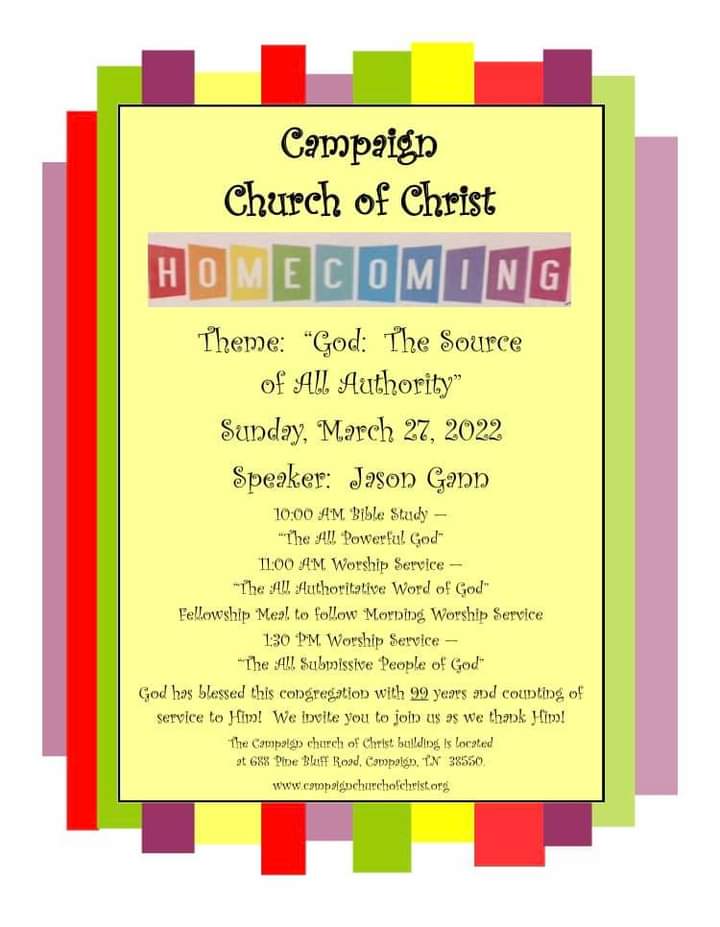|
We are continuing our study of the Fruit of the Spirit, which can be seen in Galatians chapter 5. In the last article, we discussed the characteristics of “goodness” and “faithfulness.”The characteristic that is mentioned next, is“meekness” (Galatians 5:23). Meekness is a highly regarded in the Bible. In Matthew Chapter 5, verse 5, Jesus says, “Blessed are the meek: for they shall inherit the earth.” The personality trait of meekness is very important for every Christian to have. However, what does it mean to be meek, and how are those who exemplify meekness viewed by the world?
First of all, what does it mean to be meek? The word “meek” that is used in this verse comes from the Greek word prays which means “mildness of disposition” or “gentleness of spirit.” The word “meek” can also mean “mild” and “humble.” One who shows meekness would not act in any way that would be considered arrogant or attention-seeking. There are various places in the Bible that encourage us to show meekness. The apostle Paul admonishes us to show meekness in Colossians 3:12 when he says, “Put on therefore, as the elect of God, holy and beloved, bowels of mercies, kindness, humbleness of mind, meekness, longsuffering;”. He encourages Timothy to do the same in I Timothy 6:11, “But thou, O man of God, flee these things; and follow after righteousness, godliness, faith, love, patience, meekness.” We are encouraged to conduct ourselves before others in a meek manner, even when we are trying to help them see their mistakes. “Brethren, if a man be overtaken in a fault, ye which are spiritual, restore such an one in the spirit of meekness; considering thyself, lest thou also be tempted” (Galatians 6:1). Finally, we are to be like Christ, and Christ described Himself as One who is meek, “Take my yoke upon you, and learn of me; for I am meek and lowly in heart: and ye shall find rest unto your souls” (Matthew 11:29). A person who shows meekness has much spiritual strength, however, that same person may be seen as weak and a “pushover” by the world’s view. Many in the world today believe that in order to be considered strong, one must adopt an arrogant, loud, and self-centered personality. This cannot be further from the truth. People who conduct themselves in this manner are focused on the here-and-now and temporary things of this world. Those who behave in ways that are not meek cannot enter into Heaven. “But the fruit of the Spirit is love, joy, peace, longsuffering, gentleness, goodness, faith, Meekness, temperance: against such there is no law” (Galatians 5:22-23). Another good description of meekness is “strength under control.” A person does not have to be big, loud, and boisterous in order to be strong. There are those who are spiritually strong who exemplify the Christian attitude of meekness. In today’s world which exalts those who loudly speak their mind, striving for the last word, we should work to be different from the world and maintain a manner of meekness and humility, always keeping our focus on our Home in Heaven! “While we look not at the things which are seen, but at the things which are not seen: for the things which are seen are temporal; but the things which are not seen are eternal.”(II Corinthians 4:18)
0 Comments
 In the past few articles, I have discusses several attributes of the Fruit of the Spirit, that we would do well as Christians to adapt into our own spiritual lives. The next two on the list are "goodness" and "faithfulness." I'm sure that all of us know what it means to be a "good" person. However, in order for us to be faithful Christians, we have to do more than just be a "good" person. In order for Christians to be pleasing unto God, we must have faith.. “And Jesus answering saith unto them, Have faith in God.” (Mark 11:22). We show our faith in God by trusting Him to take care of us, no matter what happens to us in this life. We draw ourselves near unto God through our faith in Him. “But it is good for me to draw near to God: I have put my trust in the Lord GOD, that I may declare all thy works.” (Psalm 73:28) Another way that we show our faith in God is being faithful to God. Being faithful to God mean that we are doing everything we can in this life to be obedient to His Commandments. As Christians, we are to examine our own spiritual lives and make sure that it lines up with God’s Word in the Bible. We are commanded to examine ourselves in II Corinthians 13:5. “Examine yourselves, whether ye be in the faith; prove your own selves. Know ye not your own selves, how that Jesus Christ is in you, except ye be reprobates?” The word “reprobate” in this verse means “unapproved” by God. So, in order for us to remain faithful Christians from the point at which we are baptized to the point of our death, we have to take the time to think about how we conduct ourselves from day to day and determine if there is anything amiss in our lives. To help you examine your spiritual standing with God, here are a few questions that may help. Ask yourself these questions to help determine if you are still living the life of a faithful Christian: 1. Are you keeping the greatest commandment which is to love the Lord with all of your heart, soul, and mind? (Matthew 22:37) 2. Is the Lord First in every list of your priorities? Does God come First with your money and time? “But seek ye first the kingdom of God, and his righteousness; and all these things shall be added unto you.” (Matthew 6:33). 3. Have you been keeping the second greatest commandment, which is to love my neighbor as myself? (Matthew 22:39) 4. Have you been seeking to teach others? “Go ye therefore, and teach all nations, baptizing them in the name of the Father, and of the Son, and of the Holy Ghost:” (Matthew 28:19). 5. Am you growing as a Christian? “According as his divine power hath given unto us all things that pertain unto life and godliness, through the knowledge of him that hath called us to glory and virtue: Whereby are given unto us exceeding great and precious promises: that by these ye might be partakers of the divine nature, having escaped the corruption that is in the world through lust. And beside this, giving all diligence, add to your faith virtue; and to virtue knowledge;” (II Peter 1:3-7). We should look to the 7 Christian Graces and working to grow in them every day. "And beside this, giving all diligence, add to your faith virtue; and to virtue knowledge; And to knowledge temperance; and to temperance patience; and to patience godliness; And to godliness brotherly kindness; and to brotherly kindness charity. For if these things be in you, and abound, they make you that ye shall neither be barren nor unfruitful in the knowledge of our Lord Jesus Christ." (2 Peter 1:5-8). 6. Have you not been forsaking the assembly of the church? “Not forsaking the assembling of ourselves together, as the manner of some is; but exhorting one another: and so much the more, as ye see the day approaching.”(Hebrews 10:25). 7. Do you do personal devotionals to God? Do you pray without ceasing? (I Thessalonians 5:17)? Do you study the Bible every day (II Timothy 2:15)? 8. Do you keep yourself free from sin? “Whosoever is born of God doth not commit sin; for his seed remaineth in him: and he cannot sin, because he is born of God.” (I John 3:9) To keep oneself from sin, you have to watch everything you say and do, and the outside sources that you expose yourself to. You also have to guard what your children say and do as well, so that they can grow up to be faithful Christians throughout their lives. 9. Are you guarding your thoughts? “Casting down imaginations, and every high thing that exalteth itself against the knowledge of God, and bringing into captivity every thought to the obedience of Christ;” (II Corinthians 10:5). 10. Do you diligently resist the temptation to sin? “What shall we say then? Shall we continue in sin, that grace may abound? God forbid. How shall we, that are dead to sin, live any longer therein?” (Romans 6:1-2). Whenever we are tempted to sin, God will always provide a way for us to escape the temptation without committing sin. “There hath no temptation taken you but such as is common to man: but God is faithful, who will not suffer you to be tempted above that ye are able; but will with the temptation also make a way to escape, that ye may be able to bear it.” (I Corinthians 10:13). We need to be self-monitoring ourselves frequently to make sure that we are living the most authentic, faithful Christian lives possible. Of course, we cannot earn heaven, but we can do God’s Will everyday of our lives, and through His Good Grace and Mercy, receive Heaven as our reward! Any persecution and pain that we suffer in this life will be worth it in the end!
 Galatians 5:22 mentions gentleness as one of the Fruit of the Spirit. The word “gentleness” in the Merriam Webster Dictionary means to be “kind.” What does it mean to be kind? To be kind means to be good to others and to be considerate. Showing compassion towards others is one way that we can show kindness towards them. When we look at what the Bible says about Jesus, we see that he had much kindness and compassion towards others. He always treated others well, even those who worked against Him, and He had a deep care and concern for the welfare of others. We see Christ’s compassion in Matthew 14:13-21: " When Jesus heard of it, he departed thence by ship into a desert place apart: and when the people had heard thereof, they followed him on foot out of the cities. And Jesus went forth, and saw a great multitude, and was moved with compassion toward them, and he healed their sick. And when it was evening, his disciples came to him, saying, This is a desert place, and the time is now past; send the multitude away, that they may go into the villages, and buy themselves victuals. But Jesus said unto them, They need not depart; give ye them to eat. And they say unto him, We have here but five loaves, and two fishes. He said, Bring them hither to me. And he commanded the multitude to sit down on the grass, and took the five loaves, and the two fishes, and looking up to heaven, he blessed, and brake, and gave the loaves to his disciples, and the disciples to the multitude. And they did all eat, and were filled: and they took up of the fragments that remained twelve baskets full. And they that had eaten were about five thousand men, beside women and children.” We see here how Jesus showed kindness and compassion towards the multitude and He made a point to care for these people. How many times do we show kindness towards others in their time of need? How often do we see someone who is sick or suffering or in need and we feel compelled to do something about it? On the other hand, how many times have we seen someone in physical or emotional need and we choose to not reach out to them? By showing kindness and compassion towards others, we can shine our Christian light before others and help lead others to Christ. “Let your light so shine before men, that they may see your good works, and glorify your Father which is in heaven.”(Matthew 5:16). May we all work every day to shine our Christian lights to the world through our acts of kindness and compassion!  "Wherefore, my beloved brethren, let every man be swift to hear, slow to speak, slow to wrath” (James 1:19) “Patience is a virtue.” This is not an actual verse in the Bible, but the Bible does speak about the importance of patience in a Christian’s life. The word “patience” comes from the Greek word, hupomone, which, according to Thayer’s Greek Dictionary means “steadfast, constancy, and endurance. Patience, or, “longsuffering” is one of the descriptions of the Fruit of the Spirit; “But the fruit of the Spirit is love, joy, peace, longsuffering, gentleness, goodness, faith” (Galatians 5:22). As Christians, we are not to act in such a way that can cause us to be tempted to sin, or cause others to sin as well. Here are some ways that we can become more patient
 If you want to start each day right, you need to study your Bible every day! A great way to learn more about the Bible is through Bible Correspondence Courses! For years, I have used Bible Correspondence courses to teach people from all over the world about the Word of God. I am currently using 3 Bible Correspondence Courses, and they are as follows;
If you are interested in participating in any of these Bible Correspondence Courses, please email me your name, mailing address, and which correspondence course you would like to participate in. Once I get your information, I will send you your first lesson to complete and send back to me for grading. After I have received and graded your work, I will send your graded work to you, along with the next lesson to complete until you have competed all 30 lessons in the course. After you have completed all 30 lessons of one course, you can begin the next correspondence course for free and complete all 30 lessons of that course. Once again, both Bible correspondence courses are free! I hope that you will take time out of every day to study God’s Word so that you grow closer to God! You life will improve greatly if you do this! "Study to shew thyself approved unto God, a workman that needeth not to be ashamed, rightly dividing the word of truth." (2 Timothy 2:15).  “And the peace of God, which passeth all understanding, shall keep your hearts and minds through Christ Jesus.” (Philippians 4:7) The next Fruit of the Spirit that Paul mentions in Galatians 5:22 is Peace. The fruits that we should have in our lives are listed with those being: love, joy, peace, longsuffering, gentleness, goodness, faith, meekness,and temperance. Something that faithful Christians have that non-Christians and unfaithful Christians do not have is peace of mind. We, who are striving to live for Christ every day, have a peace within us and with God through our Lord Jesus Christ (Romans 5:1) that cannot be taken away by external events and situations that may arise from time to time in our daily lives. We have this peace of mind when we are spiritually right with God. This sense of peace is not only a wonderful emotion that we, who are living for the Lord, possess, but it is also an understanding that sin separates us from God (Ephesians 2:1-3), and by turning away from sin, and turning wholly towards Christ, we have the hope of Heaven in the end! “And being made perfect, he became the author of eternal salvation unto all them that obey him;”(Hebrews 5:9). If we trust in God and are obedient to Him unto death, then we can truly have the peace that passeth all understanding!  “Rejoice evermore” (I Thessalonians 5:16) In Galatians 5:22, Paul, inspired by God, speaks about the Fruit of the Spirit. In the last article, I discussed the first Fruit of the Spirit that Paul mentioned, which is Love. The next Fruit of the Spirit on the list is Joy. The apostle Paul epitomized what it means to choose joy in our lives, no matter what we may be facing on a daily basis. When the Holy Spirit inspired Paul to pen many of his epistles or books in the New Testament, he was being imprisoned by the Romans for merely preaching the Word of God. It is during this imprisonment that Paul tells us to “rejoice evermore” in I Thessalonians 5:16.” He also tells us, “Now the God of hope fill you with all joy and peace in believing, that ye may abound in hope, through the power of the Holy Ghost.” (Romans 15:13). In Philippians 4:4, Paul tells us to “rejoice in the Lord always; and again I say, Rejoice.” We should always be rejoicing, because we have by the Grace of God through our obedience the forgive us of our sins, and if we “stay the course” and remain faithful unto death, we have our Hope of Heaven realized in the end! (Romans 12:12). Other followers of Christ who were inspired by God to tell us to be joyful Christians are James, the earthly half-brother of Jesus. James did not become a follower of Christ until Christ’s death and resurrection, even though he was raised by the same earthly parents (Matthew 13:55). Of course, He is the half-brother of the Lord, because while his father was Joseph, the Father of Christ is God the Father (Matthew 1:19-25, John 3:16). According to external sources, James was murdered during the reign of the Roman Emperor, Nero, for preaching the Gospel of Christ, and he faced many persecutions. It is said that his knees were callused due to the amount of time he spent on his knees in prayer every day. James tells us to be joyful even when we are being persecuted for being faithful Christians. “My brethren, count it all joy when ye fall into divers temptations; Knowing this, that the trying of your faith worketh patience. But let patience have her perfect work, that ye may be perfect and entire, wanting nothing.” (James 1:2-4). When we are being mistreated merely because we are faithful followers of Christ, we may find it challenging to be joyful, however, James shows us that it is indeed possible to choose joy in trying times. How many of us would work to be joyful in the situations that Paul, James, and other followers of Christ faced throughout history? Often times, when the slightest thing doesn’t go our way, many of us allow this to affect how joyful we are. But, as Christians, we are to be joyful, just as these men tell us to be in the Holy Scriptures. In times of happiness and prosperity in our lives, it is easy to be joyful. However, when we face trials and tribulations as Christians, we still have to choose joy, and learn to put things into the proper perspective. There will be times of weeping (Romans 12:15), but the blessings of Christ in our lives (Ephesians 1:3) bring us lives that are in general filled with joy. When we put God First in our lives, everything else will fall into place. That doesn’t mean that we will not face persecution, or deal with tragedies and trials in our lives. What it means is that no matter what happens in this temporary world with its temporary problems, we have an eternal home and an eternity of joy and peace to look forward to after this life is over! A very wise preacher once said that the meaning of Joy is this; J = Jesus O = Nothing Y = You In the word, JOY, the J stands for Jesus, the Y stands for You, and the O stands for Nothing. So, having JOY in your life means NOTHING stands between JESUS and YOU! May we all live our lives with the Joy that only faithful children of God can have, so that we can have the best lives here on the earth, help to convert others, and have the greatest Joy of all in eternity!  “But the fruit of the Spirit is love, joy, peace, longsuffering, gentleness, goodness, faith, Meekness, temperance: against such there is no law” (Galatians 5:22-23). At our local congregation, I teach the preschool/Kindergarten class which is made up of children between the ages of 3 and 5 years of age. One of the songs that I enjoy singing with the children is the “Fruit of the Spirit” song which helps the children remember the 9 different components of the fruit of the Spirit which are mentioned in Galatians 5:22-23. Showing the “fruit of the Spirit” means that we are exemplifying the same traits that are mentioned in the Bible that the Holy Spirit possesses, which also means that we are shaping our inner selves to show more of Christ to others than of our own selves. The next series of articles will cover one of the 9 fruit of the Spirit. I will begin this article with the first fruit of the Spirit: Love. We are to love our neighbor as ourselves (Matthew 7:12). We are to show love towards others by helping them and teaching them about living the faithful Christian life. In English, the word “love” can be applied to various situations. The word “love” can be applied to your feelings toward your spouse, your parents, siblings, strangers, or even a cup of coffee. Koine Greek, which is the language that the writers of the New Testament used, designated a specific word for each version of love that we feel in different situations. Here are the Greek words that were used during Christ’s time to convey the meaning of the word “Love.
"Beloved, let us love one another: for love is of God; and every one that loveth is born of God, and knoweth God." (I John 4:7). In Part 2 of this series on the Fruit of the Spirit, I will be discussing the subject of Joy!  At some point in time, we have all been sick. If the sickness is not very serious, most of us will stay home and try to get better on our own. When the sickness becomes more serious, however, most will seek the help of a doctor whom they trust. Like a medical physician whose expertise is to help the body overcome physical sickness, Jesus is our Great Physician Who has the ability to help us overcome physical and spiritual sickness. ““When Jesus heard it, he saith unto them, They that are whole have no need of the physician, but they that are sick: I came not to call the righteous, but sinners to repentance.” (Mark 2:17). We become spiritually sick when we are weakened by sin and when we allow the temporary cares of the world to take priority over God. When we become spiritually sick, we need Christ as our Great Physician to help us overcome our spiritual sickness and get better. In order to keep spiritually pure and healthy, we have the following prescription from the Bible to follow; 1. Bible Reading: The Bible acts as a mirror in which we view our spiritual selves. We have to read and study our Bibles everyday in order to gain the full benefit of its teaching and instruction (II Timothy 2:15). Just as II Timothy 2:15 says, God not only suggests that we study our Bibles regularly, He commands it! We may think that we are keeping spiritually pure in the sinful and perverse world that we live in, but we can only know for sure if we are spiritually healthy if we read our Bibles daily and examine ourselves regularly to be sure that we are truly and accurately following God’s Word. “Examine yourselves, whether ye be in the faith; prove your own selves. Know ye not your own selves, how that Jesus Christ is in you, except ye be reprobates?” (II Corinthians 13:5). I know that from my own personal experience, that after I do my daily bible study, my day goes so much better. My life is much more blessed now, and yours will be too if you take up daily bible study! 2. Pray : We are to pray daily and often. I Thessalonians 5:17 tells us to, “Pray without ceasing.” Whenever we are tempted to worry, we should pray about it to God and lay all of our burdens upon Him to carry. “Be careful for nothing; but in every thing by prayer and supplication with thanksgiving let your requests be made known unto God.” (Philippians 4:6). We should pray about anything that we feel that we need help with, no matter how small of a matter it may seem to us. When we are so troubled that we do not know exactly what to pray for, we have the Holy Spirit to help us in our prayers by interceding tot he Father on our behalf. “Likewise the Spirit also helpeth our infirmities: for we know not what we should pray for as we ought: but the Spirit Himself maketh intercession for us with groanings which cannot be uttered.”(Romans 8:26). 3. Going to a Solitary Place. Sometimes it is necessary for us to seek solitude and to be by ourselves for awhile. Jesus did this at times so that He could pray to God without interruption. “And in the morning, rising up a great while before day, he went out, and departed into a solitary place, and there prayed.” (Mark 1:35). The apostles also sought a solitary place to pray such as when Peter sat upon the rooftop to pray (Acts 10:9). Having quiet moments alone helps us to think more clearly as well as allow us some time to focus on God. 4. Crying: It has been said that crying is therapeutic for the soul, and it surely is. When we are feeling sad, angry, overwhelmed, etc, a good cry cleanses us and makes us feel better. God allows us to go through sadness in our lives so that we can cry and release the pain that is harboring in our souls. “Sorrow is better than laughter: for by the sadness of the countenance the heart is made better.” (Ecclesiastes 7:3). Sorrow also makes us better Christians, because it causes us to assess and realign our priorities in life. 5. Laughing: Just as tears are therapeutic for the soul, laughter at appropriate times can be a great relief during trying times. Laughter relieves our stress at the moment, and helps us to feel better. Those who choose to be happy in life will laugh often. “A merry heart doeth good like a medicine: but a broken spirit drieth the bones.” (Proverbs 17:22) 6. Christians Encouraging Other Christians: Having encouragement from our fellow sisters in Christ can help motivate us to continue being faithful to God, as well as see us through the many challenging times that we may face in this life. As Christians it is our duty to be encouraging to one another so that our bond is strengthened, and we can help one another go to Heaven! "Wherefore comfort yourselves together, and edify one another, even as also ye do" (I Thessalonians 5:11). It is so sad to see Christians who only want to discourage other Christians. The practice of discouraging one another not only hurts the person being discouraged, but it shows the spiritual weakness that the discourager possesses. We are to be like Barnabas, whose great ability to encourage others gave him the name "son of consolation." (Acts 4:36) 7. Attend the Worship Services of the church of Christ Regularly. By regularly, I mean that you should be worshipping with the saints every Sunday that you are not sick or taking care of the sick, and any other time in the week that the men of your congregation set aside time for Bible Study, such as on a Wednesday night. We are commanded to worship with a congregation of the church of Christ. " And let us consider one another to provoke unto love and to good works: Not forsaking the assembling of ourselves together, as the manner of some is; but exhorting one another: and so much the more, as ye see the day approaching."(Hebrews 10:24-25). Just as daily Bible study will help God Bless you in your life even more than you are blessed already, going to worship services regularly will also help your life immensely. Show me a person who does not attend worship services regularly, and I will show you a person whose life will fall apart, at some point in time and things will not be going as good in that person's life as it would be if that person was faithful in his/her worship service attendance. When you are tempted to stay home on Sunday to sleep in or stay home on Wednesday night for something other than being sick or taking care of the sick, please take the time to think about how if Jesus could die a cruel death on the cross for you, then the very least you could do is drive to a church building in your comfortable vehicle and sit in a comfortable pew in a temperature controlled building to worship Him, and to thank Him for all He has done for you! When we, Christians study and pray daily, find solitude, allow ourselves to cry and laugh when needed, and examine our spiritual selves regularly, we are blessed to have Jesus, as our mediator between God and ourselves, bring us to the Father. “For there is one God, and one mediator between God and men, the man Christ Jesus;” (I Timothy 2:5). We also have Jesus as the best example we could ever have in living the faithful Christian Life. No matter how much sorrow we have here on the earth, it all pales in comparison to what Jesus went through in His short 33 years on the planet. During all of His struggles, however, He maintained the “peace that passes all understanding” (Philippians 4:7). We can also have the peace that passes all understanding when we follow the prescription that the Great Physician has given us, and work to be more like Christ each and every day that we live. NEW BOOK ANNOUNCEMENT FOR LADIES!!! My newest book has just been published by SAIN PUBLICATIONS, and it is called THINK ON THESE THINGS: A CHRISTIAN WOMAN'S GUIDE TO GUARDING HER THOUGHTS. If you want to learn how to have a more positive attitude and mindset with God's Help, then check this book out!
It has questions at the end of each chapter which makes it great for Ladies Bible Classes! If you would like a copy of this book, please contact Sain Publications at (931) 363-6905,  With backpacks, pencils, paper and other school supplies crowding the shelves at local stores, it is apparent that the school year is about to get underway. I remember getting all new school supplies as a kid and how exciting it was to have a new binder or backpack. I also remember getting a few new outfits and a brand new pair of shoes for each school year as well. While it is important that parents equip their children with the necessary materials they need to begin the school year right, the most important supplies that a student needs will most likely not be mentioned in a list or letter from a teacher. Spiritual supplies that will help a student of any age keep their mind focused on Jesus, and help them resist wrongdoing can only be found in the Word of God. Here is a supply list that could be used by parents to help students of all ages succeed in staying obedient to God. 1. Along with making sure that their children learn their lessons from secular school books, parents should also make sure that their children learn daily lessons from The Book! While studying secular subjects such as math, science, reading, English, social studies and so on every day are important, it is more important that parents make sure that their children study the Bible every day as well. While learning secular materials will prepare you for a test here on Earth, learning spiritual lessons will prepare you for an eternity in Heaven! “Study to shew thyself approved unto God, a workman that needeth not to be ashamed, rightly dividing the word of truth.” (II Timothy 2:15). As I’ve mentioned before in previous articles, my husband and I have had a daily Bible devotional where we pray, sing praises unto God, and read from the Scriptures, since the very night of our marriage, and we plan to continue this tradition with our children! 2. Along with new outfits, shoes, backpacks and lunch boxes, parents should make sure their children are also equipped with the armour of God. This is described in Ephesians 6:13-17; “Wherefore take unto you the whole armour of God, that ye may be able to withstand in the evil day, and having done all, to stand. Stand therefore, having your loins girt about with truth, and having on the breastplate of righteousness; And your feet shod with the preparation of the gospel of peace; Above all, taking the shield of faith, wherewith ye shall be able to quench all the fiery darts of the wicked. And take the helmet of salvation, and the sword of the Spirit, which is the word of God:”. By giving children the knowledge of the Bible, he or she will be better able to discern right from wrong and make better decisions in their daily lives. 3. Finally, parents should also teach their children to live righteously by living righteously themselves. Teachers at school should not be a child’s only moral compasses. Parents should lead their children in the “nurture and admonition of the Lord” (Ephesians 6:4). A child carries what they see inside the home to the outside world, so it is imperative that parents make sure that they are leading a godly home life for their children. That includes teaching children who are unaccountable the right way to live as a Christian in the hope that they will become a Christian when they are accountable, and teaching those that are at the age of accountability the importance of becoming a faithful Christian. I hope that during these upcoming school days, and every day, parents are teaching their children to grow up to become faithful servants of God or if they are already Christians, teaching them to maintain faithfulness. Teachers, too, can be a positive influence on their students by living godly lives themselves. Let us all work together to help one another reach the goal of Eternal Life!  In I Corinthians 11:5-9, Paul discusses the subject of women wearing veils. “But every woman that prayeth or prophesieth with her head uncovered dishonoureth her head: for that is even all one as if she were shaven. For if the woman be not covered, let her also be shorn: but if it be a shame for a woman to be shorn or shaven, let her be covered. For a man indeed ought not to cover his head, forasmuch as he is the image and glory of God: but the woman is the glory of the man. For the man is not of the woman; but the woman of the man. Neither was the man created for the woman; but the woman for the man.” Some have speculated from these verses that women are commanded to wear veils on their head during worship and anywhere else in public in order to cover their hair. However, if we look onward to verse 9 of this chapter we see that Paul states “But if any man seem to be contentious, we have no such custom, neither the churches of God.” Paul is saying there that the wearing of veils during worship is not required of women. Then why did Paul discuss the subject of veils in the first place? It is certainly not wrong for a woman to not wear a veil during worship. Our culture in the United States does not have the custom of women wearing veils, so for a Christian women to not wear one, would not be considered offensive by others. A woman leaving her hair uncovered is perfectly acceptable by God because her hair is her glory; “But if a woman have long hair, it is a glory to her: for her hair is given her for a covering” (I Corinthians 11:15). However, if we were to go on a missionary trip to one of those countries that have the custom of women wearing veils, then we should also wear one, so that our message of the Word will not be hindered due to others in that culture being offended. Paul was teaching us that we, women, should not dress ourselves in such a way that is considered “taboo” in our culture. In Paul’s culture, most women wore veils on their heads, just as they do today in that part of the world. To not wear a veil meant that a woman was going against the “social norms” of her culture, and thus, she would be compromising her reputation before her peers. Not only that, she could be placing a stumblingblock before those who believed that she was doing wrong by not wearing a veil. “But take heed lest by any means this liberty of yours become a stumblingblock to them that are weak” (I Corinthians 8:9). If a Christian woman dresses in such a way that others would consider “going against the grain” of their culture’s expectations of how women should dress, then that Christian woman not only harms her influence before others, but she also runs the risk of influencing those who are spiritually weak to commit a sin themselves. Others may be influenced to commit actual sins because they believe that a Christian who dresses differently is committing a sin, so therefore it would be acceptable for them to commit a sin, also. We must ever be mindful of our influence before others, and that is why we should focus on spreading the Gospel and teaching others the way to Heaven more so than trying to appear different. Of course, in all things, we must always work to be modest (I Timothy 2:9-10). Fearing God and keeping His commands and thereby helping others (and ourselves) go to Heaven should be our sole purpose in life (Ecclesiastes 12:13, Matthew 28:18-20). Our bodies are just temporary dwellings that we have been given while we live this temporary life on Earth. While it is important that we dress modestly, trying to be different in the eyes of others who share our culture is a waste of time, because we are then putting too much focus on the temporary, and too little focus on the eternal. “Lay not up for yourselves treasures upon earth, where moth and rust doth corrupt, and where thieves break through and steal: But lay up for yourselves treasures in heaven, where neither moth nor rust doth corrupt, and where thieves do not break through nor steal: For where your treasure is, there will your heart be also” (Matthew 6:19-21). May we all keep our eyes fixed on the prize of Heaven, and be sure that our outward appearance helps others to see more of Christ than ourselves.  As a parent of 5 children under 10 years of age, I find that much of my day is spent repeating things. Children can be easily distracted, so anything can draw their little attention spans away from the task at hand. I am often reminding them to put their shoes on, pull their shoes off and put them in a certain designated area, brush their teeth, etc. Our little ones are good and obedient children and for this, we are thankful. Is it best to repeat things to instill within them or is there some other way to help children adopt the behaviors that we want them to do in order for them to know how to do these things correctly when they are older? I love my children very much, and I want to be the best mother I can be for them, so I went to the Bible for help on this subject. I love all of the books of the Bible, but I have to say that Philippians is my favorite. The apostle Paul shows us what it means to have a positive attitude in the face of adversity in this book. The book of Philippians is a letter written by Paul to the church at Philippi, while he was imprisoned by the Romans. In Philippians, Paul gives such great advice on how to persevere through any trial, because he, himself has done so many times. Philippians 4:13 is possibly the most well known verse in the book of Philippians, and it is my favorite verse in the Bible, “I can do all things through Christ who strengtheneth me.” As I was looking over the book of Philippians, I noticed what Paul wrote in chapter 3 and verse 1, “Finally, my brethren, rejoice in the Lord. To write the same things to you, to me indeed is not grievous, but for you it is safe.” Reading this verse made me realize that Paul was not bothered at all by repeating the same things he had already told the Philippians, in fact, he said that it was “safe” for them or “confirmed.” So Paul is saying by his example that we should not be bothered by having to repeat ourselves over and over to anyone in order for them to learn, especially our children. Children are blessings from God (Psalm 127:3). We are to be humble like little children in order to go to Heaven (Matthew 18:4). I know that all children are precious gifts from God, and they are certainly worth the time it takes to teach them all of the things they need to know in order to live happy, productive, and faithful lives before God. “Train up a child in the way he should go: and when he is old, he will not depart from it” (Proverbs 22:6). Paul has taught me that I should never consider it a problem to repeat myself to little ones, when I have something important for them to know and to do. Giving them those reminders is safe and best for them, just as we as adults benefit from frequent reminders. May we all seek to be as little children so that we can have the humility necessary to fit into Heaven!  When my family and I were about to head to Florida for our family vacation a couple of weeks ago, we stopped by a restaurant for lunch. As we waited for our table, we noticed the various signs and wall decorations that hang all around us, and my husband noticed a sign in particular and took a picture of it, thinking this quote provides a good idea for a lesson. As you can see from the picture, the sign says, " No matter how far you've gone down the wrong road, turn around!" This sign is true in many ways, especially when it comes to our own spirituality. God, through His Infinite Grace and Mercy, allows us to have free will in this life, where we either choose to follow Him, or follow the world. "A man's heart deviseth his way: but the LORD directeth his steps." (Proverbs 16:9). If we follow God, then He will reward us with Heaven, however, if we choose to follow the world instead of God, we sin against Him and cannot enter into Heaven. "Lay not up for yourselves treasures upon earth, where moth and rust doth corrupt, and where thieves break through and steal: But lay up for yourselves treasures in heaven, where neither moth nor rust doth corrupt, and where thieves do not break through nor steal: For where your treasure is, there will your heart be also." (Matthew 6:19-21). What if a Christian falls away from God, and follows Satan down the "wrong road" of sin? Can a Christian ever turn back, and be saved again? The answer to this question can be found in various places in the Bible. For example, the apostle Peter, who loved Jesus and was a faithful follower of Christ, ended up denying Jesus three times before the rooster crowed, just as Jesus said he would do in Luke Chapter 22. Once the rooster crowed, however, Peter realized what he had done and "wept bitterly" (v. 62). Peter would go onto become an elder in the church of Christ ( I Peter 5:1) , and outside sources state that Peter died for the cause of Christ by being crucified upside down. In fact, in John 21:15-19, as Peter re-affirmed his love for the Savior, Christ makes it clear that Peter would suffer a death of giving his life for the Most Holy Cause of Christ. Earlier, the apostle Peter went down the wrong road of sinning against Christ, but "turned around" again by repenting of the wrong he had done. Instead of allowing the sin to bring him down permanently, Peter flourished as a Christian and defender of the faith until his death. Like the sign at the restaurant we visited states, no matter how long we have been in sin, we can always turn back to God. God will receive us with open arms, and forgive us of our sins, IF we repent. “If we confess our sins, he is faithful and just to forgive us our sins, and to cleanse us from all unrighteousness.” ( I John 1:9). The key to a happy life, however, is to not waste time living your life for yourself, but living it for God. Only true and faithful Christians can know what it means to have the best lives here on the Earth (John 10:10). However, if you are a Christian, and you have drifted from the Way into an unholy life of sin and have fallen away from God, you can turn around and get back on the right path to eternal salvation through repentance of your sins and showing the fruits meet for repentance (Matthew 3:8). In order to show the fruits meet for repentance, you must show that you have changed, and have turned completely away from the sins you have committed. In order for Christians to know if we are on the right road to Heaven, we must know God's Word through daily Bible study (Psalm 1, II Timothy 2:15), regular worship service attendance (Hebrews 10:25), a healthy prayer life (I Thessalonians 5:17), and being in the habit of self-examination to make sure that there is nothing amiss in our lives (II Corinthians 13:5). Everything that we can do here on the earth to make sure that we are not going down the "wrong road" is worth it when it comes to the wonderful bliss we will experience in Heaven! Do not ever feel that you have gone too far from the Lord to turn back! You CAN turn back!  So far, we have discussed the first two types of celestial beings we will meet in Heaven one day, which are the Angels and Cherubim. There is one more type of celestial being that we will meet in Heaven, and that is the Seraphim! The Seraphim are first referenced in the Bible in Isaiah chapter 6. In this chapter, the Isaiah describes these celestial beings in this way;“Above it stood the seraphims: each one had six wings; with twain he covered his face, and with twain he covered his feet, and with twain he did fly. And one cried unto another, and said, Holy, holy, holy, is the LORD of hosts: the whole earth is full of his glory. And the posts of the door moved at the voice of him that cried, and the house was filled with smoke. Then said I, Woe is me! for I am undone; because I am a man of unclean lips, and I dwell in the midst of a people of unclean lips: for mine eyes have seen the King, the LORD of hosts. Then flew one of the seraphims unto me, having a live coal in his hand, which he had taken with the tongs from off the altar: And he laid it upon my mouth, and said, Lo, this hath touched thy lips; and thine iniquity is taken away, and thy sin purged. Also I heard the voice of the Lord, saying, Whom shall I send, and who will go for us? Then said I, Here am I; send me.” (Isaiah 6:2-8). We see from this passage that the Seraphim love us and want us to have forgiveness of our sins. They represent the light of God. Over the course of the last few articles, we have seen that all three of the celestial beings that reside in Heaven were created by God. All are similar in that they are created by God, and that their wisdom and knowledge is greater than ours. This is because they are spiritual beings that live in the spiritual realm and do not have finite, earthly bodies and minds like we have. They differ in their appearance, as well as in the jobs that they have been given to do by God. Angels act as messengers to the faithful, the cherubim act as guardians, and the seraphim work to praise and proclaim the Word of God. Angels, cherubim, and seraphims, are all wonderous and amazing creations of God to think about, and their true essence, appearance, and purpose is above our ability to understand while we are still in our earthly bodies. That is why it is truly exciting to think about how one day, if we continue to live a faithful Christian life unto death, that we will be blessed to see all of the holy angels, cherubims, and seraphims, and know fully the impact they have made upon our lives here on earth and in eternity!  June 24, 2022 will go down in the history books as a wonderful day for women’s rights, especially unborn women! There is nothing more innocent and defenseless as a baby, and the Supreme Court has ruled in favor of protecting unborn girls and boys from being mercilessly slaughtered by their cold-hearted mothers and the professional “hit-men” and “hit-women” who they hire to perform the murders. Abortion was first legalized in the ruling of Roe V. Wade on January 22, 1973, despite nothing in the United States Constitution permitting abortions. In fact, the United States Constitution does the opposite, protecting life. Since 1973, the murder of innocent children has been upheld by the government of the United States, and more lives have been lost than any other war that the U.S. has been involved in combined. We understand from God’s Word most importantly that no matter how early on the mother is expecting, a person is a person from conception, so there is not a time that is acceptable for an expecting mother to murder her baby, because ending the life of any person, no matter how young or old is wrong (Psalm 51:5, 139:16; Luke 1:36, 41; James 2:26). “These six things doth the LORD hate: yea, seven are an abomination unto him: A proud look, a lying tongue, and hands that shed innocent blood,”(Proverbs 6:16-17). Romans 13:19 says, “Thou shalt not kill,”. As a mental health counselor, I spoke with several women who chose to have abortions in the past. Most were unmarried women who felt as if they could not mentally and/or financially handle the child. I would rebuke a mother such as this by saying that instead of ending her child’s life, she should have given her child a chance by either deciding to raise that child, or at the very least, though she should have carried on the work of a mother toward the child, she could have allowed another family to adopt that child. Of course, the main trait that all of these women possessed was a keen sense of selfishness. It takes a selfish and cold-hearted woman to decide that her child should be murdered, no matter how soon after conception has taken place. Even in the case of rape and incest, the baby is innocent of the mistakes of his or her parents, and should not have to pay the ultimate price for these mistakes. Rape and incest are both horrible acts that are committed upon women, and a woman who has conceived a child through rape or incest should focus on having the perpetrator punished for his wrongdoing, rather than punishing her own innocent child with death! Therefore, I am so grateful unto God for allowing Roe v. Wade to be overturned, so that we can finally see states that have governments that care about God and all lives work to protect more babies, and so that we can see more people standing up for what is right in this world, rather than following Satan. This is indeed a wonderful day, not only for young girls and women of all ages today, but for the future of all mankind. I hope that this text has helped you think about how horrible the idea of killing innocent children is, and how wonderful it is that the highest court in the United States has made it unlawful to commit murder on our precious little ones!  The Bible speaks of celestial beings known as the Cherubim. Popular culture will make you think that cherubs are “baby angels,” and they are often depicted as babies with wings on their backs, This is not the case, however, because the prophet Ezekiel describes the Cherubim in Ezekiel Chapter 1, verses 4-24 in this way: “And I looked, and, behold, a whirlwind came out of the north, a great cloud, and a fire infolding itself, and a brightness was about it, and out of the midst thereof as the colour of amber, out of the midst of the fire. Also out of the midst thereof came the likeness of four living creatures. And this was their appearance; they had the likeness of a man. And every one had four faces, and every one had four wings. And their feet were straight feet; and the sole of their feet was like the sole of a calf's foot: and they sparkled like the colour of burnished brass. And they had the hands of a man under their wings on their four sides; and they four had their faces and their wings. Their wings were joined one to another; they turned not when they went; they went every one straight forward. As for the likeness of their faces, they four had the face of a man, and the face of a lion, on the right side: and they four had the face of an ox on the left side; they four also had the face of an eagle. Thus were their faces: and their wings were stretched upward; two wings of every one were joined one to another, and two covered their bodies. And they went every one straight forward: whither the spirit was to go, they went; and they turned not when they went. As for the likeness of the living creatures, their appearance was like burning coals of fire, and like the appearance of lamps: it went up and down among the living creatures; and the fire was bright, and out of the fire went forth lightning. And the living creatures ran and returned as the appearance of a flash of lightning. Now as I beheld the living creatures, behold one wheel upon the earth by the living creatures, with his four faces. The appearance of the wheels and their work was like unto the colour of a beryl: and they four had one likeness: and their appearance and their work was as it were a wheel in the middle of a wheel. When they went, they went upon their four sides: and they turned not when they went. As for their rings, they were so high that they were dreadful; and their rings were full of eyes round about them four. And when the living creatures went, the wheels went by them: and when the living creatures were lifted up from the earth, the wheels were lifted up. Whithersoever the spirit was to go, they went, thither was their spirit to go; and the wheels were lifted up over against them: for the spirit of the living creature was in the wheels. When those went, these went; and when those stood, these stood; and when those were lifted up from the earth, the wheels were lifted up over against them: for the spirit of the living creature was in the wheels. And the likeness of the firmament upon the heads of the living creature was as the colour of the terrible crystal, stretched forth over their heads above. And under the firmament were their wings straight, the one toward the other: every one had two, which covered on this side, and every one had two, which covered on that side, their bodies. And when they went, I heard the noise of their wings, like the noise of great waters, as the voice of the Almighty, the voice of speech, as the noise of an host: when they stood, they let down their wings.” Ezekiel identifies the amazing creatures that he sees as the cherubim in Ezekiel 10:1-2. The purpose of the cherubims as we can see from Scripture is to praise God and do what He wants them to do. In Revelation Chapters 4-6, the apostle John sees beasts that are most likely the cherubim. Unlike the popular idea that cherubim are little baby angels with wings, the depiction that Ezekiel and John gave of the appearance of the cherubim was a creature that had the head of a lion, the head of an eagle, the head of an ox, and the head of a man. Each head of the cherubim represented the Supremacy of God. For example, the lion is the “king of the jungle,” so to speak, the ox is the superior of all of the work of animals, the eagle is the superior of all of the birds, and mankind is superior to all living creatures upon the Earth. The cherubim are also depicted as having four wings, two of which covered their bodies, and two were outstretched. They also had four human hands underneath each wing, as well as feet like calves’ feet. Most notably, they had four wheels, and these wheels were described as a “wheel within a wheel.” These wheels allowed the cherubim to move around without turning around, which is symbolic of how God is every where at all times. Also, each wheel had many eyes, which is symbolic of God being able to see everything, and how He is ever watchful of the things going on upon the Earth! These wheels obviously do not refer to UFO’s and aliens like some think. The cherubim were also used as guards in the Bible, such as when Adam and Eve are cast out of the garden of Eden, God placed cherubim wielding flaming swords in the eastern part of the garden, to keep them out. Genesis 3:24 makes this clear with these words, “So he drove out the man; and he placed at the east of the garden of Eden Cherubims, and a flaming sword which turned every way, to keep the way of the tree of life.” Depictions of cherubims are placed in either side of the ark of the covenant which was located in the most holy place in the temple as we see in Exodus 37. Now, before I close this article and our time of study together, I want us to reflect in looking back on Ezekiel’s vision about which I referred earlier. Above the cherubim was placed a crystal-like “firmament” which was in the shape of a throne, and on the throne was the figure of a man who was clothed in a bright light with a rainbow above His Head (Ezekiel 1:25-28). Ezekiel states, by inspiration of God, “This was the appearance of the likeness of the glory of the LORD. And when I saw it, I fell upon my face, and I heard a voice of one that spake.” Also, Ezekiel 2:1-4 identifies this One as the Lord God. How wonderful it will be when we will be able to see these images for ourselves in Heaven! Let these thoughts motivate you to live every day for the Lord and to not “grow weary in well doing” (Galatians 6:9).  All Christians have the Hope of being in Heaven one day. We look forward to being in the presence of God the Father, God the Son, and God the Holy Spirit for all eternity. We long for the day that we will see our loved ones who have passed on before us, as well as all of the faithful men and women who lived since the beginning of Creation. Another wonderful thing that we have to look forward to is getting to witness the wonderful celestial beings that also reside in Heaven which are mentioned in the Bible. Over the course of three articles, I want us to focus our hearts and minds on these amazing beings, created by God. We will start with the group of them that seems to be the most familiar to people, yet about whom there are many misunderstandings. Then, we will look at two more groups about which there is not as much familiarity. Can you think of the group that is most familiar to people? This group is known as the angels. Let’s look at this type of celestial being in more detail.
We do know that angels take the faithful who pass away into Paradise as Luke 16:22 teaches. As we experience death, there are those loving angels to comfort us. They take us into our Paradise home. Although we are lower than the angels, we have the hope of being more like angels when we reach Heaven! Those who pass away do not become angels, as angels are spiritual beings that are separate from humans. “For in the resurrection they neither marry, not are given in marriage but are as the angels of God in heaven” (Matthew 22:30). We will be among the angels when we reach a home in Heaven, but we will not be angels. We will, in fact, be transformed upon the Day of Judgment as this mortal body is transformed into a resurrected body that will live eternally with God and His angels! “For the Lord himself shall descend from heaven with a shout, with the voice of the archangel, and with the trump of God: and the dead in Christ shall rise first: Then we which are alive and remain shall be caught up together with them in the clouds, to meet the Lord in the air: and so shall we ever be with the Lord” (I Thessalonians 4:16-17).  This past Monday was Memorial Day, where our nation stopped to honor those in the military who have sacrificed their lives for our freedom. Even though it is wonderful to do this, we must also remember the greatest sacrifice that ever took place on the Earth, and that is the sacrifice Christ gave on the Cross for the remission of our sins. The practice of crucifixion was common during Jesus’ time on the Earth, especially in the Roman Empire. For example, in 71 B.C., following a slave revolt in Rome, 6,000 recaptured slaves were crucified on the Appian Way leading to the city. This form of execution was also employed by the Persians, Greeks, and the Jews. Alexander the Great was said to have 2,000 men, and the Jew Alexander Jannaeus crucified 800 Pharisees who had been involved in a revolt. Crucifixion is said to be the worst way to die, which is why it was typically used for criminals. The person who was to be crucified was first subjected to a beating with a three-thong whip made of leather with pieces of bone or metal attached to it. The victim was stripped naked and then was secured with leather ties. He was then beaten from his upper hack to the lower extremities of his legs. The flesh would be separated from the muscle during these beatings. Eventually muscle could he shredded from the bone. The bones of the back, including the spinal column, was often exposed during these beatings. It was not uncommon for these beatings to be fatal. It is said by historians that such a beating would have most likely left Jesus in a physically critical state, even before the crucifixion took place. After the beating, Jesus was required to carry the cross to the execution site. It is said that the upper crossbar of the cross would have weighed 120 pounds, which easily explains why Jesus needed assistance carrying it after the previous brutal beating (Luke 23:26). Once He had reached to place where He would be crucified, Jesus’ wrists would have been nailed to the cross. It is a common belief that Jesus’ palms were nailed to the Cross, but this would not have been so because a nail through the palm of the hand would not have been able to hold up the weight of the rest of the body. Therefore, the Romans would place a nail through each of the wrists of the person being crucified. The Greek word for “hands” (cheiras) such as was used in John 20:27 also referred to the wrists. Jesus’ feet were nailed as well. In 1968 the first remains of a crucified man was found in Jerusalem with a 7 inch nail pierced through his heels. A criminal who was subjected to crucifixion was left hanging until they died from extensive blood loss and suffocation. Many people lived for days in this manner, however, Jesus only lived 6 hours. Jesus’ crucifixion was prophesized a thousand years before He came to the Earth. In Psalm 22:14-18, King David, who was a prophet himself, wrote the following: “I am poured out like water, And all my bones are out of joint: My heart is like wax; It is melted within me. My strength is dried up like a potsherd; And my tongue cleaveth to my jaws; And thou hast brought me into the dust of death. For dogs have compassed me: A company of evildoers have inclosed me; They pierced my hands and my feet. I may count all my bones; They look and stare upon me. They part my garments among them, And upon my vesture do they cast lots” Other prophecies of Jesus’ crucifixion include Isaiah 50:6 which foretold Jesus’ back being beaten, Psalm 22:16 foretells Jesus’ hands and feet being pierced, and His clothing being divided, Psalm 69:21 foretells how Jesus was given vinegar and gall to drink. Although it was often the case that those crucified were not given a burial, but left out in the open to rot or be eaten by animals, Christ was given a tomb by a wealthy Jew, and this was prophesized in Isaiah 53:9). All of these prophecies show the divine origin of the Bible. The reason Christ died such a horrendous death on the Cross was to fulfill God’s Plan of Salvation. He had to die in such a manner that He shed blood, so that we could have remission of sins (Hebrews 9:22). God’s Plan was that His Son would offer His life in exchange of mankind’s (I Corinthians 15:3). Jesus, Who was innocent, died in the same manner that was bestowed upon the guiltiest of criminals, so that we, who are guilty of sin, could have eternal life. We can also be buried and raised up with Christ in baptism, and have remission of sins. (Acts 2:38; Romans 6:3-4). During His time on the Cross, Christ spoke eight sentences before finally fulfilling His mission here on the Earth. These seven sayings were as follows: 1. “Father forgive them, for they know not what they do.” (Luke 23:34) 2. “Verily, I say unto thee, today thou shalt be with me in paradise” (Luke 23:43) 3. {To His mother, Mary, regarding the apostle John} “Woman behold thy son” (John 19:26) 4. [To the apostle, John, regarding His mother, Mary] “Behold thy mother” (John 19:27). John, from that point, took Mary into his own home. 5. “Eli, Eli, lama sabachthani? That is to say, My God, my God, why hast though forsaken me?”(Matthew 27:46) 6. “I thirst” (John 19: 28) 7. “It is finished” (John 19:30). 8. “Father, into thy hands, I commend my spirit” (Luke 23:46). We should take time out of every day and think about the great suffering and sacrifice that Jesus endured so that we can have eternal life in Heaven. God wants all of us to be saved, however it is our responsibility to choose to be saved. None of us are worthy of Heaven because we are all sinners (Romans 3:23), however, through the great Mercy of God, and the sacrifice of His Son, Jesus Christ, can we have a home in Heaven, if we are faithful and obedient to His Word (Jude 13:21). Whenever we are tempted to follow the ways of the world, let us take time to think about the horrible suffering and death that Christ endured so that we can be saved, and let us all be grateful to Him for this sacrifice. We are given a wonderful gift that we do not need to squander away by trying to “fit in” with the ways of the world. May we all strive to work every day to be the best Christians we can be, so that we can honor Christ in our thoughts, actions, and appearance! When others look at us, they should see more of Christ than they do of us! It is only in this way that we can shine our Christian lights into the world and influence others to follow Christ.  Everyone has different opinions about how things should be in this world, and how others should think, feel, and act. That is why I would say that every adult living today has faced some criticism at some point in his or her life. Some of this criticism may have no basis in truth, and therefore, we should not internalize it because the criticism given is only meant to hurt us. The Bible speaks against those who wrongfully criticize others, “Let no corrupt communication proceed out of your mouth, but that which is good to the use of edifying, that it may minister grace unto the hearers” (Ephesians 4:29). However, there is such a thing as “constructive criticism” which is designed to help a person grow rather than hurt you. Constructive criticism is given to a person who is doing wrong in an attempt to help that person see the error of his/her way and grow. Christians may see fellow Christians doing something wrong in the Sight of God, and try to teach that person better. It might also be given to someone who is doing right, but who could do even better. We are commanded to help one another grow spiritually, and that can sometimes involve giving one another constructive criticism. “Take heed to yourselves: If thy brother trespass against thee, rebuke him; and if he repent, forgive him.” (Luke 17:3). “This witness is true. Wherefore rebuke them sharply, that they may be sound in the faith;” (Titus 1:13). Have you ever received constructive criticism from a fellow Christian? That person may have seen something that you were doing which was spiritually wrong, and you may have thought you were doing the right thing. How did you handle the criticism? We are to receive constructive criticism, and apply it to our learning and spiritual growth, even though we might perceive it as hurtful at first. “Now no chastening for the present seemeth to be joyous, but grievous: nevertheless afterward it yieldeth the peaceable fruit of righteousness unto them which are exercised thereby.” (Hebrews 12:11). There are 3 ways that most people handle constructive criticism. See if you know someone who falls into one of these categories:
Instead of becoming angry with the messenger, many people who heard the preaching of the Gospel were pricked in their hearts, and asked Peter what they needed to do to be saved (v. 37). Unlike those who stoned Stephen, who were said to be “cut to the heart” (Acts 7:54), and then proceeded to gnash on him with their teeth and stone him, these people of Acts 2 were cut or pricked to the heart, and responded appropriately by asking what to do to be saved. Peter replied with the following: “Repent and be baptized every one of you in the name of Jesus Christ, and ye shall receive the gift of the Holy Ghost” (v.38). These people had humbled themselves and allowed themselves to hear Peter’s message from God which meant that they were spiritually wrong. They “that gladly received his word were baptized,” and 3,000 souls were baptized that day (v. 41). Consider how many souls would be saved today and how many faithful Christians there would be if everyone was as open to the Truth as these people! To grow spiritually, we have to be open to constructive criticism, even though it may not feel good to us in the beginning. We do not always see the error of our ways, and we can learn from the wisdom of others, “A reproof entereth more into a wise man than an hundred stripes into a fool.” (Proverbs 17:10). We can also learn from daily Bible reading: “All scripture is given by inspiration of God, and is profitable for doctrine, for reproof, for correction, for instruction in righteousness:” (I Timothy 3:16, Psalm 1:2, II Timothy 2:15). Likewise, if we are the ones giving constructive criticism to an erring brother or sister in Christ, we should be mindful of the 3 reactions we may get in return and prepare ourselves to handle them accordingly. Remember, too, that sometimes constructive criticism is given to those who are doing right, but who could do even better. If we can focus on being the best Christians we can be, and help others do the same, then we all can spend an eternity in Heaven together!  In this life, there is a certain view that many people of the world have of what makes a person a success. Most people in the world consider having great riches makes a person a success. Others may think that being famous makes you a success. Still others may say that living life the way you want to live it makes you a success. But what does it mean to really be a success in life? Being a true success in life doesn’t require you to have a lot of money. It doesn’t require you to have a high-paying, high-profile job. It doesn’t even require you to be famous. What makes us a true success in life is living our lives as faithful Christians and going to Heaven when we die. If we fail to do either of these things, then we are failures in life. King Solomon in Ecclesiastes 12:13 says; “Let us hear the conclusion of the whole matter: Fear God, and keep his commandments: for this is the whole duty of man.” (Ecclesiastes 12:13). Our whole purpose for being on this earth is to fear God and to obey Him. If we do these things throughout our lives and are able to have a home in Heaven after we die, then we are a true success! Likewise, we are a success if we teach our children to be faithful Christians. Most parents are focused on making sure that their children make a certain letter grade in school, learn as much as they can about the various subjects taught in school, or acquire that academic or athletic scholarship. Unfortunately, many parents place these things above this children’s spiritual training. There are many children who do very well in school, but who have never been to a worship service of the church. This is so sad because these parents are setting their children up for failure. Yes, they may do well in this life, with jobs that allow them to make enough money to have as many temporary luxuries as they want. However, when it’s all said and done, and their lives are over, these children who were taught to base their entire focus and identity on earthly things, will have no place in Heaven, which is solely for spiritually minded Christians. Parents, if you fail to do your duty of training your children to be faithful Christians throughout their lives, then you are a failure in life. “Train up a child in the way he should go: and when he is old, he will not depart from it.” (Proverbs 22:6). We have to measure ourselves with God’s Measurements, not the measuring stick that the world uses, because the world only focuses on the “here-and-now.” Our minds should be always fixed on eternity, and when we do this, the various troubles and cares of this world will seem more like the “small stuff” in comparison. The “big stuff” in life have to do with spiritual matters, not matters of the world. We cannot let our jobs, families, friends, hobbies, or anything else take priority above serving God and obeying Him. If we allow worldly things to take first place over spiritual things, then we are making the world our home and not Heaven. “Lay not up for yourselves treasures upon earth, where moth and rust doth corrupt, and where thieves break through and steal: But lay up for yourselves treasures in heaven, where neither moth nor rust doth corrupt, and where thieves do not break through nor steal: For where your treasure is, there will your heart be also” (Matthew 6:19-21), If we lose Heaven, we have lost everything and everything we have done while on this earth will be for nothing. “For what shall it profit a man, if he shall gain the whole world, and lose his own soul?” (Mark 8:36). So, do not worry about how much or how little you have accomplished in this life. If you are living the life of a faithful Christian, you are a major success in this life! It does not matter what the world thinks of you, it is what God Thinks of you that matters! If you are not living faithfully to God’s Word, I encourage you to start doing so now! Your eternal soul depends on it! As Christians, we are to examine our own spiritual lives and make sure that it lines up with God’s Word in the Bible. We are commanded to examine ourselves in II Corinthians 13:5. “Examine yourselves, whether ye be in the faith; prove your own selves. Know ye not your own selves, how that Jesus Christ is in you, except ye be reprobates?” The word “reprobate” in this verse means “unapproved” by God. So, in order for us to remain faithful Christians from the point at which we are baptized to the point of our death, we have to take the time to think about how we conduct ourselves from day to day and determine if there is anything amiss in our lives.
To help you examine your spiritual standing with God, here are a few questions that may help. Ask yourself these questions to help determine if you are still living the life of a faithful Christian:
Did you know that the Earth contains 352 (352,000,000,000,000,000,000) gallon-sized milk containers of water? And yet, Isaiah 40:12 says that God can measure all of the water on the Earth in the hollow of His Hand.
Did you also know that the Earth weighs over 13 septillion (13,000,000,000,000,000,000,000,000) pounds? Yet Isaiah 40:12 goes on to say that God can calculate and measure all of the dust of the Earth, the mountains and hills. The universe stretches out more than 200 sextillion miles (2000,000,000,000,000,000,000,000). Yet God can measure the universe by the width of His Hand. Scientists claim that there are over 100 billion galaxies, and each galaxy has over 100 billion stars. Yet Isaiah 40:26 says that God who created the stars, can call each star by name. So, if our God can hold the ocean in the palm of His Hand, if He can consider the weight of the dust of the Earth, if He can measure the width of the universe with the span of his hand, and he can call each star by its name, then He can most assuredly handle the problems and difficulties of our lives! ““Have not I commanded thee? Be strong and of good courage; be not afraid, neither be thou dismayed: for the Lord thy God is with thee whithersoever thou goest”(Joshua 1:9). There is nothing that God cannot do, for with God, all things are possible! (Mark 10:27). Therefore, seek God’s Help in times of trouble through the avenue of prayer, and God will be with you, if you are obedient and faithful to Him! This is the only way that we can have the peace that passes all understanding that the apostle Paul speaks of in Philippians 4:7. The life of the faithful Christian is truly the best life we can have here on the Earth because we have God on our side no matter what happens to us in this life. May we all work every day to be more like Christ and less like ourselves so that we will be able to have wonderful lives here, and even better lives in eternity!
On February 26, 2022, I gave a lesson on "The Home" during a Ladies'Bible Class held at Tennessee Bible College during their annual "Renew" Lectureship. Please click the "Play" button below to hear the lesson! A lesson on what God expects of the home is a much needed topic for discussion in today's day and time. I hope you enjoy this lesson and gain some knowledge from it that will help you draw closer to God and His Word!
Campaign church of Christ will be having thier annual Homecoming this Sunday, March 27, 2022 beginning at 10AM for Bible Class, 11 AM for the first worship service with a fellowship meal following the 11 o'clock worship service, and our last service will be at 1:30! All are invited, and there are classes for all ages!
|





